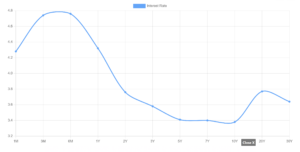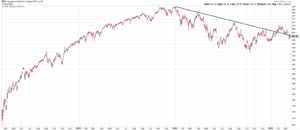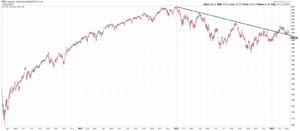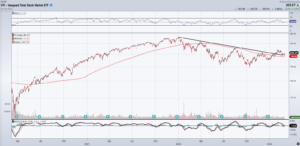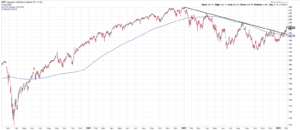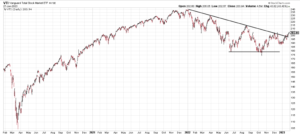March 2023: Rebounding Spirits Amidst Banking Jitters
Following February’s pullback, March saw a rebound in sentiment for financial markets, albeit amidst new concerns. Here’s a breakdown of the key highlights:
Equity Market Bounce:
- Major indices recovered, defying some negative forecasts.
- The S&P 500 climbed 4.5%, the Dow Jones 3.4%, and the Nasdaq a staggering 17.05%.
- Growth stocks continued their outperformance, leading the charge in the recovery.
Fading Concerns Over Inflation:
- The CPI fell for the first time since October 2021, fueling hopes for peak inflation.
- This dovish sentiment led to a decline in long-term bond yields.
Central Bank Tightrope Walk:
- The Federal Reserve maintained its 0.25% rate hike pace, while acknowledging the potential for slower economic growth.
- Global central banks like the Bank of England and the European Central Bank also began a gradual process of policy tightening.
Banking Sector Stress:
- The collapse of Silicon Valley Bank, a key financial institution, rattled the banking sector and created short-term volatility.
- However, government interventions and broader market resilience minimized the damage.
International Markets Uptick:
- Developed markets like the MSCI EAFE recovered 4.2%, while emerging markets, particularly China, also bounced back with a 2.3% gain.
Other Notable Events:
- China set a lower GDP growth target of “around 5%” for 2023, indicating concerns about its economic slowdown.
- The ongoing war in Ukraine continued to contribute to supply chain disruptions and energy price volatility.
Overall, March was a month of renewed optimism for financial markets. The fading threat of inflation and cautious central bank actions allowed for a rally, despite the temporary shock of the banking crisis. However, uncertainty remains regarding the sustainability of the uptrend, with factors like geopolitics and potential economic headwinds playing a role.

